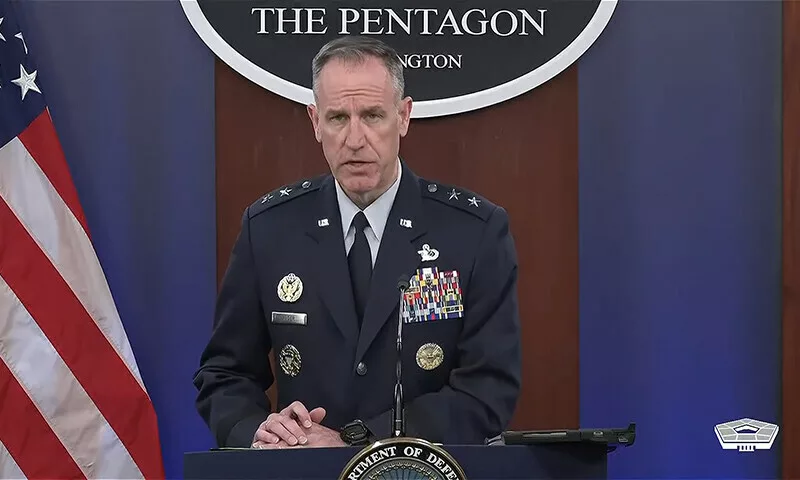The US adopted a cautious approach to Pakistan’s ballistic missile program on Thursday, following remarks by a senior White House official who suggested that Pakistan could develop the capability to “strike targets in the United States.”
During a press briefing, Pentagon Press Secretary Maj. Gen. Pat Ryder avoided direct criticism when asked about US sanctions on Pakistan’s state-owned missile development agency and three private vendors.
“We value Pakistan as a partner in the region and have worked closely with Pakistan on counterterrorism efforts in the past,” Ryder stated, emphasizing the Pentagon’s long-standing relationship with Pakistan’s military. He refrained from commenting further on Pakistan’s missile development or the sanctions, directing such queries to other US agencies.
This cautious response from the Pentagon contrasts sharply with the statements of Deputy National Security Adviser Jon Finer, who on Thursday accused Pakistan of developing long-range ballistic missile capabilities that could pose an “emerging threat” to the US. Speaking at the Carnegie Endowment for International Peace, Finer expressed “real concerns” about Pakistan’s missile program, noting that advancements in the technology could extend Islamabad’s strike capabilities well beyond South Asia. “It’s hard for us to see Pakistan’s actions as anything other than an emerging threat,” Finer remarked.
This tougher rhetoric from US officials came after the State Department sanctioned four Pakistani entities, accusing them of contributing to Pakistan’s missile development program.
The Pentagon’s cautious stance reflects its intent to maintain strong ties with the Pakistani military, a critical regional partner in past US-led operations. Analysts believe this approach is meant to avoid alienating Islamabad, especially as the US seeks to strengthen its influence in the Middle East and South Asia, regions that border Pakistan.
Diplomatic sources suggest the Pentagon’s measured response aligns with its tradition of maintaining military-to-military relations with Pakistan, even during times of political tension. In contrast, the White House’s more confrontational tone appears to indicate growing frustration within the Biden administration over Islamabad’s strategic direction.
Experts warn that the US’s handling of Pakistan’s missile program could further strain relations between the two nations. As Washington navigates its strategic interests in South Asia, the differing tones from various branches of the US government highlight the complexity of the US-Pakistan relationship.




